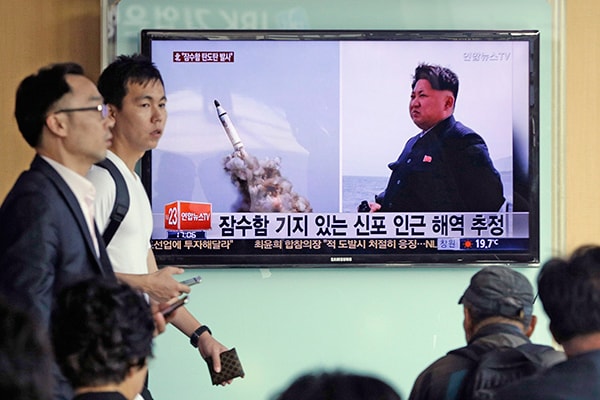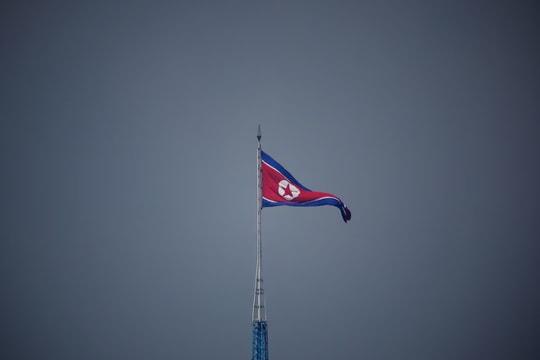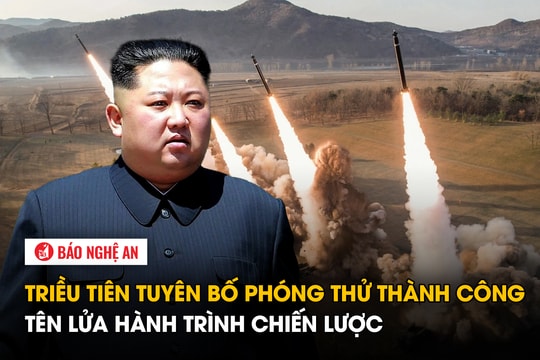Russia reveals surprising secret of North Korean missiles
What successes have North Koreans had in the field of missile manufacturing, how were those successes achieved, and who helped North Korea master such complex technologies?
North Korea has just test-fired a missile from an area in the country's North Hwanghae province. Next,Director of the North Korean Space Agency's Scientific and Experimental Center Kwan Hyun Il announced that the country will increase the number of satellite launches, despite international sanctions (North Korea currently has two satellites in orbit).
Mr. Kwan also said that the country will conquer the moon in 10 years and also emphasized that North Korea also has plans to conquer other planets. And another noteworthy point in the director's statement: Pyongyang has made many achievements in designing long-range missiles that can destroy any target and even reach the US territory.
 |
| Photo: Ahn Young-oon / AP |
Here is an introduction to the North Korean missile program through an article by Russian military expert Vladimir Khrustalev published in the newspaper “Lenta.ru” (Russia) for your reference. The photos and photo captions in the article are by the author, the parentheses for clarification are by the translator.
“North Korean missiles have become the favorite media bogeyman of the rest of the world. There are many myths, propaganda, counter-propaganda and sometimes outright fabrications surrounding the topic.
What successes have North Koreans had in the field of missile manufacturing, how were those successes achieved, and who helped North Korea master such complex technologies?
The missile program of the Democratic People's Republic of Korea (DPRK) has attracted much public attention in recent years. One of the most discussed issues is the prospect of developing existing capabilities.
The widely accepted view of the DPRK's general level of development (which is said to be low) seems to be at odds with the reports of Pyongyang's missile-building achievements.
The above contradiction (between the low level of economic and scientific development in general - that is to say, low level - and the successes in the field of missiles) is often explained by the fact that North Koreans are just someone's "clients" and without outside help they cannot make even a single step forward (in missile construction). In reality, things are much more complicated: but first of all, it is necessary to point out the following points:
First, the DPRK is one of the most “closed” countries in the world and also the most “secretive” nuclear-missile power in the world, so there is extremely little reliable information.
Second, there is a lot of hostile propaganda and sensationalist stories about North Korea. In this case, there are many similarities with the media reports about some military projects of Saddam Hussein (President of Iraq) in the 1990s. The stories of speculation and fake news further obscure the real picture.
Third, the degree of North Korean dependence on foreign assistance changes over the years, both in specific projects and on macro-level issues, and the list of North Korea's main partners (in the “missile club”) also changes.
And fourth, there is no common system for classifying North Korean ballistic missiles. Different sources use their own criteria for classification, so a SCUD D missile can be considered a completely different type of missile in the service of the Korean People's Army.
The first teacher
Contrary to popular belief, North Korea's first teacher in missile development was not the Soviet Union.
Since the late 1950s the Kremlin had taken a cautious attitude towards Pyongyang and so although it continued to support North Korea within the framework of (Socialist) bloc thinking, the Soviet Union did not give too much priority to supplying weapons to the country.
This policy is clearly seen if we compare (military aid to North Korea) with the Soviet Union's military aid to the Arab countries. Egypt and Syria received a huge amount of weapons and a variety of types that North Korea could not even dream of.
According to Baodatviet






